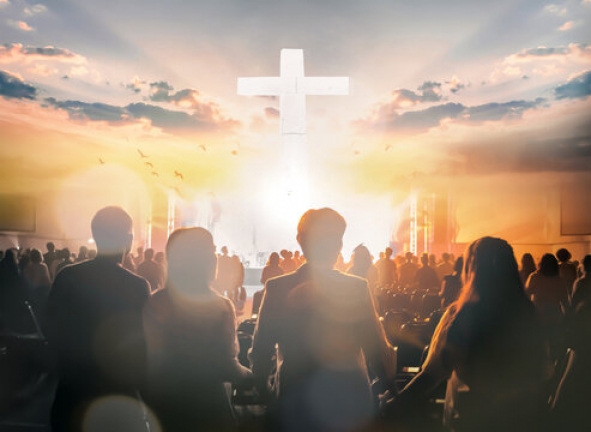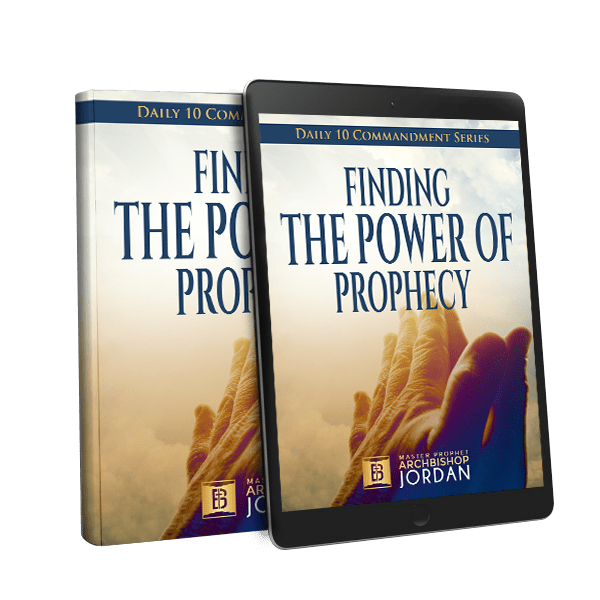
Prophecy in Different Religions and Spiritual Traditions
Introduction
Prophecy has always been a fascinating part of human spirituality throughout history. Different religions and spiritual traditions have beliefs about special people who receive messages from a higher power and gain knowledge about the future. These prophecies often serve as guidance, warnings, or encouragement for believers. In this article, we will explore the concept of prophecy in different religions and spiritual traditions, looking at their unique perspectives and practices.
Prophecy in Christianity
Christianity, one of the largest religions globally, places a lot of importance on prophecy. According to Christian belief, prophets are individuals chosen by God to share divine messages and foresee what will happen in the future. These prophecies are seen as a way for God to communicate with humanity. Here are some important aspects of prophecy in Christianity:
The Role of Biblical Prophets: The Bible, which includes the Old and New Testaments, has many stories about prophets like Moses, Elijah, Isaiah, and Jeremiah. These people were chosen by God as messengers to guide and instruct the people.

The Prophecies about the Messiah: In Christianity, there are specific prophecies that talk about the coming of the Messiah, Jesus Christ. These prophecies, found in the Old Testament, are believed to have come true through Jesus’ birth, ministry, crucifixion, and resurrection.
Charismatic Gifts: In certain Christian groups, believers think that spiritual gifts, including prophecy, still exist today. Modern-day prophets claim to receive direct messages from God and provide guidance and predictions to the faithful.
End Times Prophecy: The Book of Revelation in the New Testament contains prophecies about the end of the world and the Second Coming of Christ. Different Christian groups interpret these prophecies in their own way, leading to different beliefs about the future.
Prophecy in Islam
Islam, the world’s second-largest religion, strongly believes in prophetic figures and divine revelations. The Prophet Muhammad is seen as the final and most important prophet, who received the Qur’an as a direct revelation from Allah (God). Here are some insights into prophecy in Islam:
Prophet Muhammad: Muslims believe that Prophet Muhammad, with the help of the angel Gabriel, received the Qur’an over a span of 23 years. The Qur’an is seen as the ultimate guide for Muslims and includes prophecies, ethical teachings, and legal principles.
The Hadith: Alongside the Qur’an, the Hadith serves as an important source of guidance for Muslims. Hadiths are collections of sayings and actions of the Prophet Muhammad, providing insights into his life and teachings. Some Hadiths include prophetic statements about future events.
Eschatological Beliefs: Islamic eschatology involves beliefs about the end times and the Day of Judgment. Islamic prophecies regarding the end times include the appearance of the Mahdi (the guided one) and the return of Jesus Christ, who is seen as a prophet in Islam.
Dreams and Visions: In Islamic tradition, dreams and visions are considered as possible means of divine communication. Muslims may interpret certain dreams as prophetic, seeking guidance or finding meaning in these experiences.
Prophecy in Hinduism
Hinduism, one of the oldest religions in the world, encompasses a wide range of beliefs and practices. The concept of prophecy in Hinduism is multi-dimensional, with different perspectives across various Hindu traditions. Here are some aspects of prophecy in Hinduism:
The Vedas and Upanishads: The ancient texts of Hinduism, like the Vedas and Upanishads, contain philosophical insights, rituals, and prophecies. These prophecies are often expressed through poetic language and symbolic stories.
Astrology and Divination: Hindu culture has a rich tradition of astrology and divination. Astrologers and seers study celestial movements and use various divination techniques, such as palmistry and numerology, to make predictions and offer guidance based on individuals’ birth charts and circumstances.
Prophetic Figures: Hindu mythology and epics feature prophetic figures like Rishi Narada, who had the ability to see and understand past, present, and future events. These figures are highly respected for their wisdom and divine insights.
Karma and Destiny: Hinduism places great emphasis on the concept of karma, the law of cause and effect. Although not strictly prophetic, karma is believed to shape one’s future based on their past actions. Hindus seek guidance from religious texts and gurus to understand their dharma (duty) and make informed decisions.
Prophecy in Other Spiritual Traditions
In addition to the major religions mentioned above, prophecy and divination play important roles in various other spiritual traditions around the world. Let’s explore a few examples:
Ancient Greek Oracles: In ancient Greece, oracles like the Oracle of Delphi were highly regarded. People sought advice and predictions from these oracles, who were believed to have the ability to communicate with gods and offer insights into the future.
Native American Vision Quests: Native American tribes engaged in vision quests as a spiritual practice. These quests involve fasting, meditation, and spending time alone in nature to seek personal visions and receive guidance from the spirit world.
Tibetan Buddhism: Within Tibetan Buddhism, there is a practice called “mo” or “divination.” It involves using various objects, like dice, to answer specific questions or provide guidance on important matters. Experienced lamas or monks often perform this form of divination.
Yoruba Religion: The Yoruba religion, practiced in West Africa and the diaspora, uses a system called Ifa for divination. Priests called Babalawos use divination tools like palm nuts or cowrie shells to communicate with Orishas (deities) and offer guidance.
FAQs about Prophecy in Different Religions and Spiritual Traditions
Q: Are all prophecies seen as accurate and infallible in religious contexts?
A: No, interpretations of prophecies can vary, and not all predictions are universally accepted as accurate or infallible.
Q: Can individuals today claim to be prophets in any religion?
A: While some religious traditions acknowledge the existence of contemporary prophets, the authenticity of such claims is a subject of debate and varies among different communities.
Q: How do prophecies influence the lives of believers?
A: Prophecies can serve as a source of hope, guidance, and encouragement for believers, shaping their decisions, actions, and perspectives on the future.
Q: Do all religions consider dreams and visions as prophetic?
A: While dreams and visions are often associated with prophecy, not all religions consider them as inherently prophetic. Interpretations may vary.
Q: Can prophecies be interpreted differently over time?
A: Yes, interpretations of prophecies can evolve and change as societies and religious communities develop new perspectives and understandings.
Q: Are there any universal prophecies shared among different religions?
A: While there may be similarities in prophecies, such as beliefs in the end times or the coming of a savior figure, the specifics and interpretations vary across different religions.
Conclusion
Prophecy holds a significant place in different religions and spiritual traditions worldwide. From the biblical prophets in Christianity to the divination practices of Hinduism and the visions sought in Native American traditions, prophecies offer believers guidance, insights, and glimpses into the future. Although interpretations and beliefs about prophecies may differ, they all share a common desire to understand and navigate the mysteries of the divine and the destiny of humanity.












